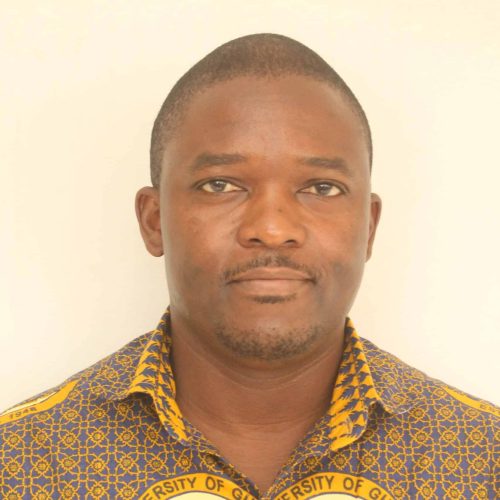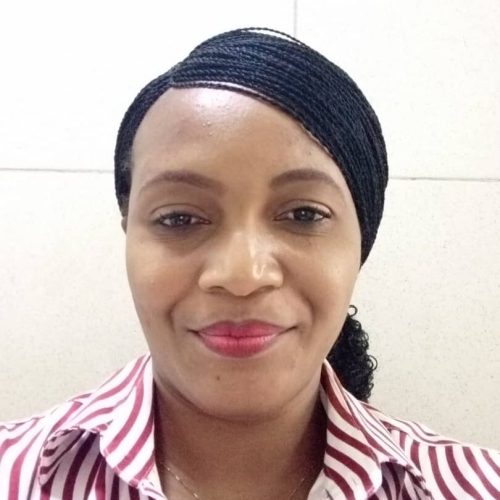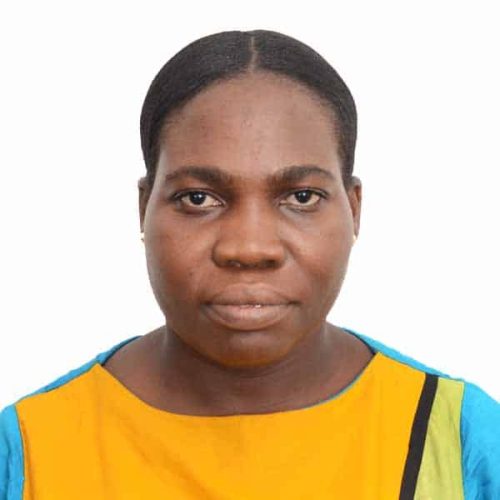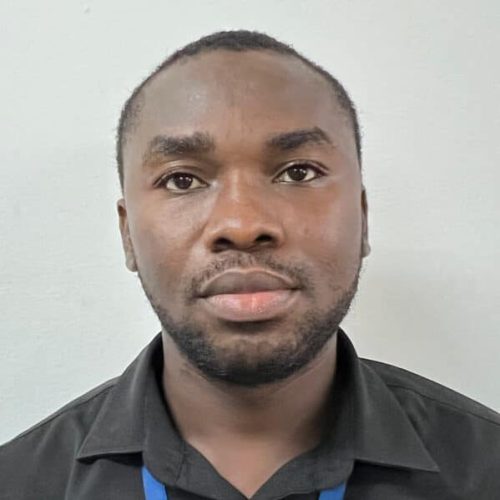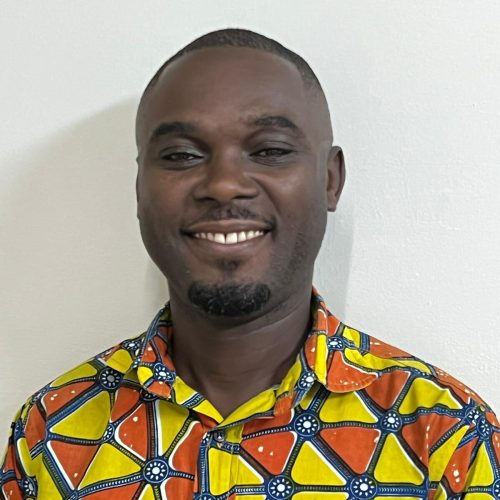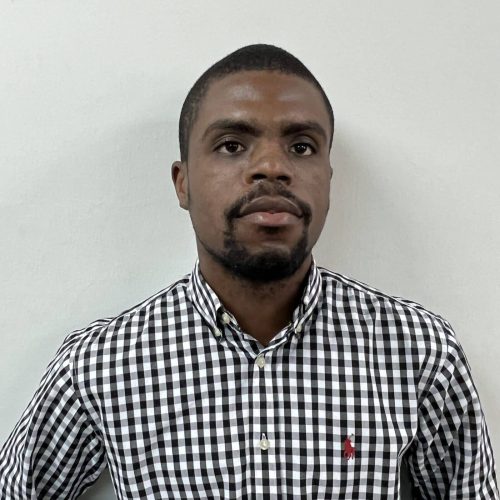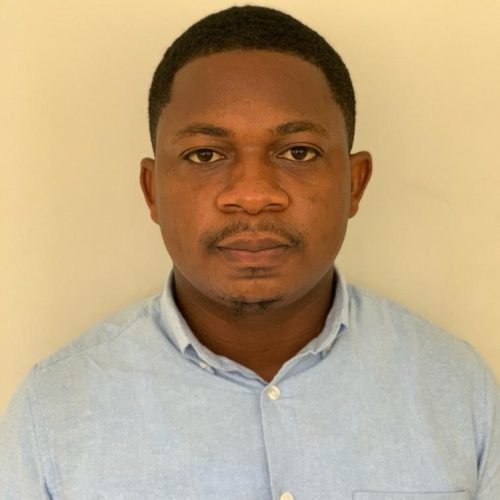Electron Microscopy & Histopathology
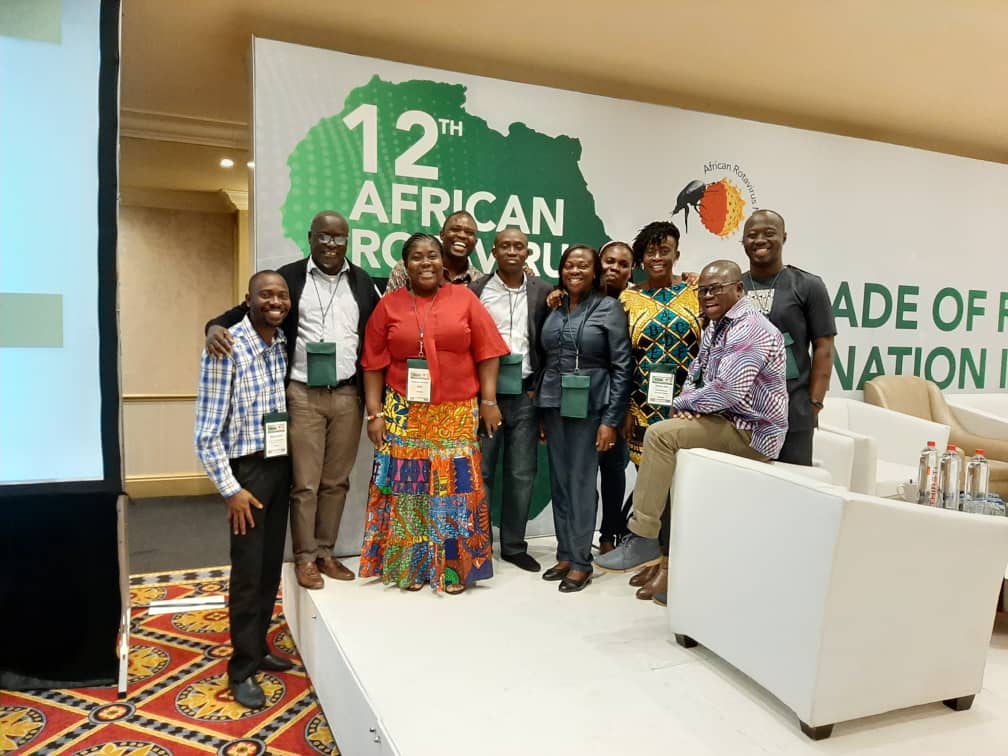
To support and enhance an environment of research excellence where faculty are inspired and challenged to push the boundaries of knowledge creation
- To explore the importance of the ELECTRON MICROSCOPE as a diagnostic tool for improving the diagnosis of communicable diseases including existing and emerging infectious diseases
- To provide histopathology services for collaborative research and graduate student training, and tissue processing for diagnosis of human and animal diseases
- To continue to be a center of excellence in enteric virus research and harness this expertise in providing service and training opportunities in line with the Institute’s mandate and that of the University in general.
Departmental Research Activities
The main research focus of the Department of Electron Microscopy and Histopathology in the past 20 years has been diarrhoeal diseases, with emphasis on viral agents, especially rotaviruses and noroviruses. Our objective has been to provide evidence-based data to shape local and international policy, ultimately resulting in the reduction of the burden imposed on vulnerable populations.
The Department is a founding member of the African Rotavirus Surveillance Network (ARSN), set up in 2006 to initiate and facilitate childhood diarrhoeal disease burden studies and rotavirus surveillance activities across Africa. The Department hosts the WHO Rotavirus Regional Reference Laboratory (RRL) which serves West Africa as one of 9 global RRLs. The RRL provides technical and administrative support as well as training for paediatricians, senior scientists and technicians from ARSN member countries in West Africa in the identification and molecular characterization of rotaviruses and noroviruses. The Department is also a key member of the Global Paediatric Diarrhoea Surveillance (GPDS) Network, leveraging its expanded diagnostic expertise to support GPDS sites within ARSN member countries in the sub-region in the simultaneous identification and characterization of over 20 diarrhoeal pathogens using customized Taqman microarray cards. The Department has built capacity in several critical areas over the years, including:
- Ultramicrotomy and Electron Microscopy
- Molecular epidemiology of viral agents of gastroenteritis in children
- Clinical trials for available enteric viral vaccines candidates in Ghana
- Advocacy for rotavirus vaccine introduction in Africa (Rota council)
- Targeted gene sequencing (Sanger method)
- Whole genome sequencing (Illumina, MiSeq and Oxford Nanopore platforms)
- Bioinformatics
- Cell culture propagation of rotaviruses and genetic engineering of recombinant rotaviruses using plasmid based reverse genetic system
The Department also houses the only functional transmission electron microscope in West Africa and supports national and sub-regional institutions in carrying out histopathological, ultra-structural studies of plant and animal tissues and morphological studies of pathogens. Unique expertise available in the Department include microtomy, ultramicrotomy, sample processing for electron microscopy and preparation of histopathological slides.
Engaging a large number of Ghanaian and international collaborators across different fields, we continue to leverage our strengths in extending our networks for cutting-edge, multi-disciplinary research.
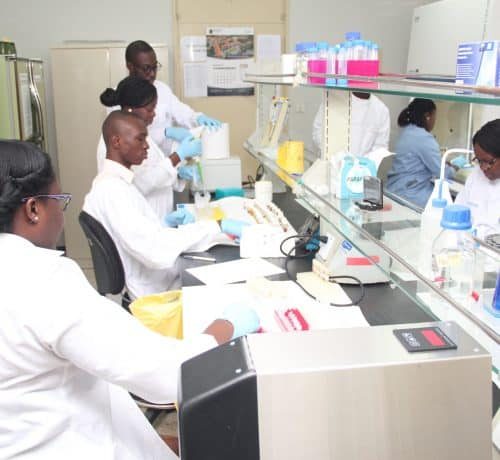
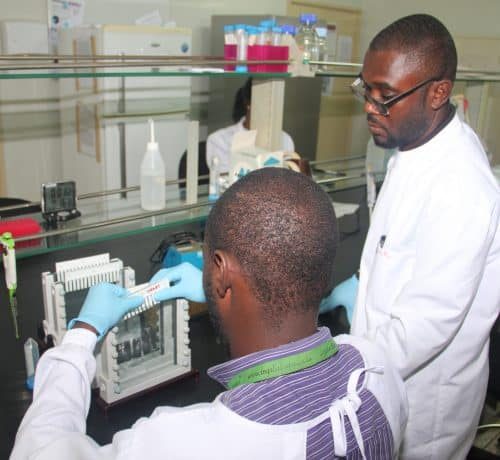
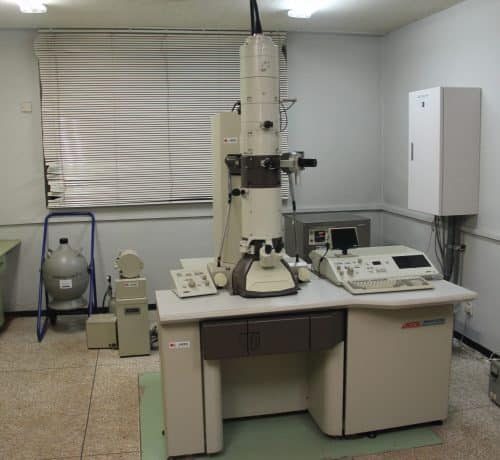
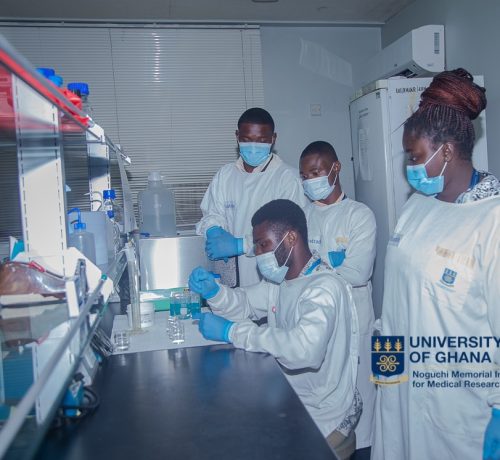
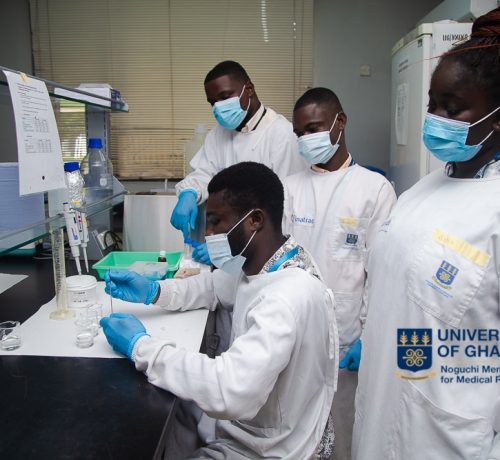
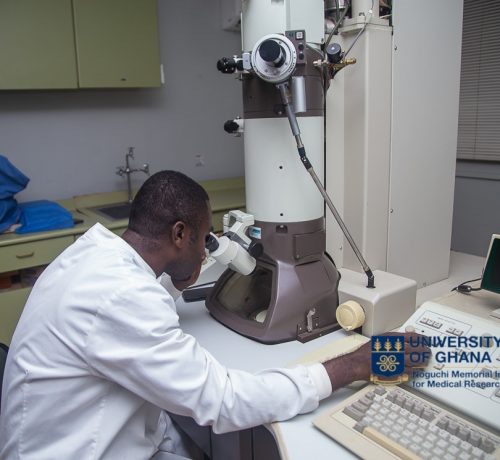
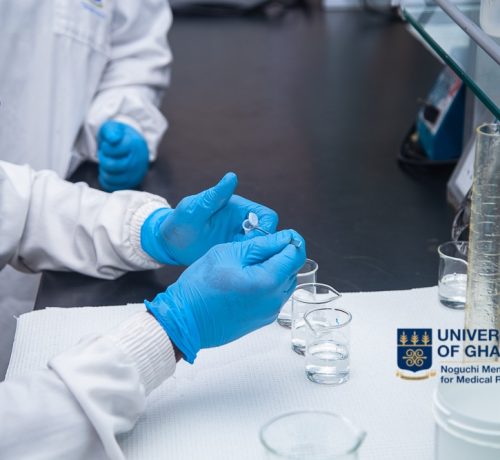
- Komfo Anokye Teaching Hospital (KATH)
- Korle-Bu Teaching Hospital (KBTH)
- Kwame Nkrumah University for Science and Technology (KNUST)
- University of Cape Coast (UCC)
- School of Public Health, University of Ghana (SPH)
- Faculty of Agriculture (UG)
- Department of Medical Microbiology (UGMS)
- University of Health and Allied Sciences (UHAS)
- Shai Osu Doku Regional Hospital (SODH)
- Dodowa Health Research Centre (DHRC)
- Medical University of South Africa (MEDUNSA)
- University of Pretoria, South Africa
- University of Kent (UK)
- Princeton University(USA)
- Emory University (USA)
- University of Tel Aviv (Israel)
- Stichting Amsterdam Institute for Global Health and Development (AIGHD),
- Pasteur Institute (France)
- Ghana Dutch Collaboration
- Inter Medical Foundation (USA)
- World Health Organisation (WHO)
- Centers for Disease Control and Prevention (CDC)
- BMG Foundatiom
- PATH
- MERK
- DFID
- Japan International Cooperation Agency (JICA)



